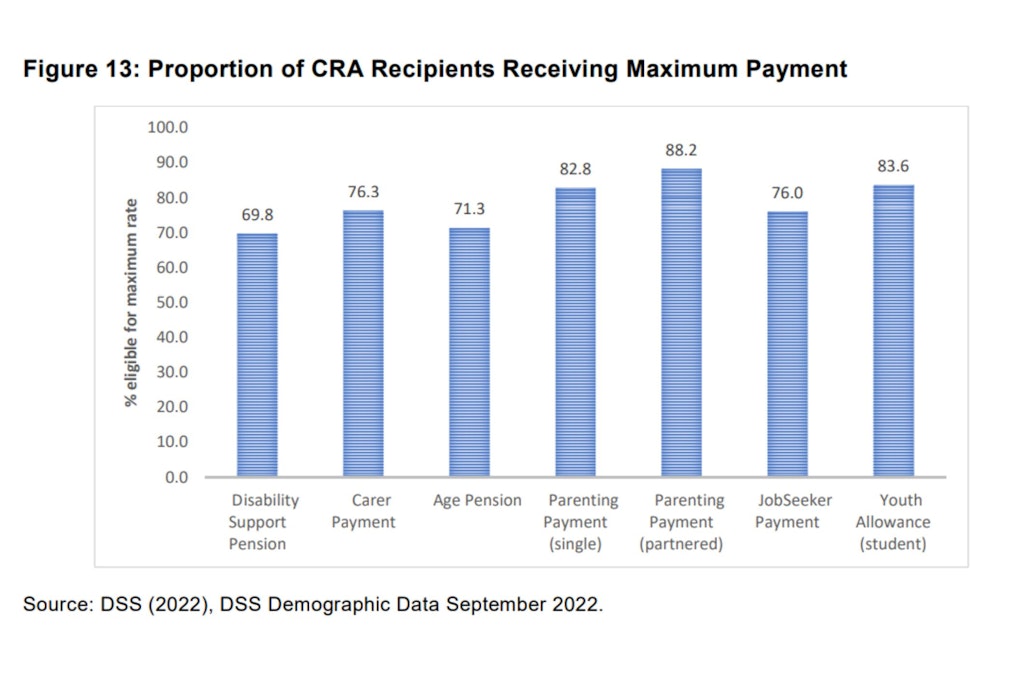Urgent calls to simplify access and raise youth rate of DSP

Advocacy group Children and Young People with Disability Australia (CYDA) has supported the recommendation from the Interim Economic Inclusion Advisory Committee (IEIAC) report to the Government to raise JobSeeker and Rent Assistance payments.
Advocacy group Children and Young People with Disability Australia (CYDA) has supported the recommendation from the Interim Economic Inclusion Advisory Committee (IEIAC) report to the Government to raise JobSeeker and Rent Assistance payments.
Regarding young people with a disability, CYDA Chief Executive Officer Skye Kakoschke-Moore expressed an urgent need for increased support, especially for those having trouble accessing the higher Disability Support Pension (DSP) payment.
“We know that over 40 percent of people on JobSeeker have reduced capacity to work,” said Ms Kakoschke-Moore.
“With access to inclusive education still very limited, discrimination in hiring practices, and disability employment services that often fail to meet individual needs, young people are disadvantaged on many fronts when it comes to finding work, and some genuinely can’t work at all.
“The application process for the DSP is then over-complicated and inaccessible to many who need it, which means we’re fast-tracking young people with disability into extreme poverty on JobSeeker and Youth Allowance payments.”
The report showed that payments for those receiving JobSeeker or Youth Allowance were inadequate given the current economic climate and were unable to support growing rates of inflation and housing in the rental market, contributing to the overall cost of living crisis.
For some, particularly those experiencing family violence or difficult living situations, the DSP, much like JobSeeker and Youth Allowance, is insufficient to live independently and may force them to endure traumatic experiences for longer.
The youth rate of DSP is below the Henderson poverty line for a non-working person of $495.66 per week, at $267.10 per week for those 18 to 20 and dependent or $353.80 and independent.
For partners of people with disabilities, the risk of domestic violence is considerably higher than those without disabilities, but if a partner’s wage exceeds the cutoff point, people living with a disability may be financially reliant on their romantic partner.
The 18-month ‘Program of Support’ has been another hurdle for young people trying to access the DSP, with the program applying to those who meet the DSP criteria of the 20-point impairment tables, without necessarily having 20 points in any particular table.
“The name of the program is misleading. It’s less [of] a support program and more an extended application process, where people with disability, many of whom do qualify for the DSP and will eventually be approved, are forced to spend up to a year and a half demonstrating that they do need the payment.
“That’s a very long time to leave a young person on JobSeeker, unable to afford food or rent.”
The Committee strongly recommended that the Government concentrate on improving the accessibility and affordability of the JobSeeker, Youth Allowance and Disability Support Pension, using the National Disability Data Asset and funding it appropriately.
Another point of interest in the 99-page IEIAC report were the budget standards between payments made to Australians eligible for social service systems and the costs of living.
The IEIAC encouraged the Government to recalculate benchmarks and adhere to adequate payment, with the rate of those receiving maximum payment for Commonwealth Rent Assistance for DSP being the lowest of other Government social service programs.

Ms Kakoschke-Moore, speaking on behalf of CYDA, encouraged the Government to consider the IEIAC report findings and the 37 recommendations included within it in the upcoming May Federal Budget.
“This is not an area where young people with disability can afford to wait,” said Ms Kakoschke-Moore.
Despite findings surrounding the DSP and its woefully inadequate financial support for many Australians dependent on payments, the Australian Council of Social Services (ACOSS) has highlighted the need for JobSeeker raises to take priority, following release of the report.
Federal Treasurer Jim Chalmers is expected to decline the recommendations in line with the report ahead of the Federal Budget.
For more information about the Government approach to funding disability support and care, you may be keen to read the recent article on proposed plans for the National Disability Insurance Scheme.